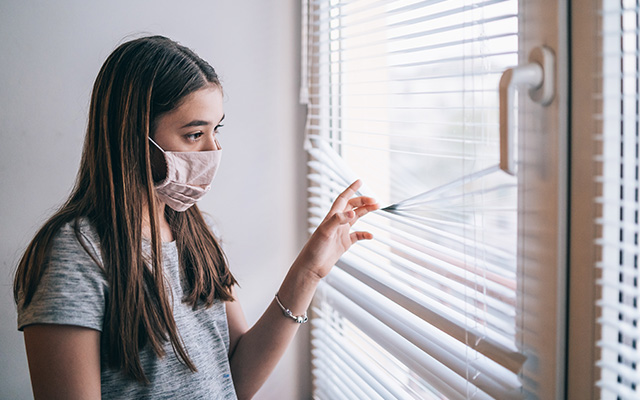There are many things in life that are uncertain and the pandemic has pushed people of all ages to the limit on processing the unknown. But, the emotional toll that Covid-19 has taken on teenagers has been uniquely difficult. In fact, a recent survey found that 64% of teens believe the experience of Covid-19 will have a lasting impact on their generation’s mental health.
In our current clinical practice, one theme that continues to emerge with teens is their need for help with tolerating uncertainty.
What does it mean to tolerate uncertainty?
Some people cope better with uncertainty than others. Uncertainty tolerance is the ability to cope with or accept uncertain situations. Someone with a high tolerance for uncertainty is better able to adapt to situations they can’t control. Individuals with low tolerance for uncertainty are more likely to experience anxiety, stress, and depressive symptoms when faced with situations that are unknown.
Ways to cope
In treatment, we tell the teens we work with that there is good news: the skill of tolerating uncertainty can be strengthened just like you can build muscle. The following summarize just a few of the ways teens can strengthen their uncertainty tolerance muscles.
1. Work on acceptance
Emotions can be uncomfortable but they cannot hurt you. We teach teens that they can best cope with uncertainty if they develop a mindset of accepting rather than avoiding the discomfort that comes along with it. A typical response to discomfort or stress is to eliminate it or avoid it. Working with a tool called mindfulness helps teens intentionally bring awareness to the present moment, without engaging in any effort to change it. When they practice mindfulness skills, being mindful becomes more natural and the ability to tolerate any negative emotion, including uncertainty, significantly improves.
2. Practice opposite action
Opposite action is a Dialectical Behavioral Therapy (DBT) skill in which we intentionally do the opposite of behaviors we typically rely on to deal with an emotion. In this context, we teach teens to identify which behaviors they would most likely engage in when feeling distressed. One common response we hear is to retreat to reassurance seeking about the pandemic by checking news stories, online reports, and social media. These behaviors typically take place for teens alone, in their bedroom. To practice opposite action, we encourage that when feeling the urge to constantly be connected to the news, they do something inconsistent with that behavior. An example here would be leaving the phone at home while taking a walk around the block. Or, turning the phone off while reading a book or watching a movie.
3. Identify and challenge automatic thoughts
When dealing with uncertainty, we can experience negative automatic thoughts. These thoughts tend to fall into different categories that we refer to as cognitive distortions. Cognitive distortions are habitual ways of thinking that are often inaccurate or negatively biased. We teach cognitive restructuring in order to help teens identify their unhelpful thoughts, challenge, and modify them.
4. Focus on what you can control
Make a list of all the things you are worried or stressed about. Then, separate the list into two columns – things you can control and things you can’t control. For example, we cannot control whether schools will re-open or sports will resume, but we can socialize in safe ways with friends and get physical exercise. We cannot speed up the national vaccine progress, but we can proactively sign up and become vaccinated when it is our turn. By taking a solution oriented approach, we are able to make progress on the things we can control while working to accept what we can’t.
There is no doubt that teens are facing unprecedented stress during the pandemic and it is significantly impacting their mental health. Teens who are better at coping with uncertainty will experience less anxiety and depression and this will help them cope significantly better with stressors related to the pandemic in addition to future stress that they will undoubtedly experience.

